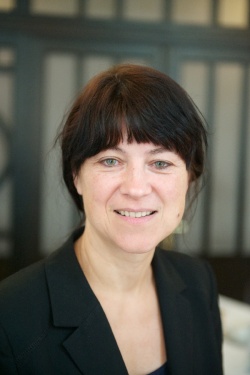Stiff heart - The ‘stepchild’ of cardiology
Michael Krassnitzer reports
Patients with heart failure with normal ejection fraction (HFNEF) also referred to as ‘stiff heart’, show a normal ejection fraction and severe diastolic dysfunction. President of the Austrian Society of Cardiology, Professor Irene Lang warns: ‘It is particularly concerning that stiff heart is a little known and insufficiently researched cardiac condition -- a stepchild in research, diagnostics and therapy alike.'

According to the European Society of Cardiology (ESC) 28 million people suffer cardiac insufficiency. ‘Current research indicates that 50% of heart insufficiency patients suffer heart failure with normal ejection fraction,’ explained Professor Irene Lang, of the University Clinic of Internal Medicine II, Vienna Medical University, Austria.
HFNEF affects twice as many women as men. Diastolic dysfunction occurs when tissue builds up in the left ventricle. The heart stiffens and cannot relax properly. Currently, there is no established treatment. In addition to spironolacton, beta blockers are administered to lower both the resting heart rate and blood pressure.
Speaking at the Austrian Society’ of Cardiology’s annual congress, which focused on HFNEF, Prof. Lang said: ‘Heart failure due to diastolic dysfunction is more difficult to diagnose than systolic heart insufficiency, since the symptoms are basically identical.’ Thus the disease and its consequences are only now being fully recognised. ‘We not only have a high incidence of stiff heart, we also have many patients where diastolic dysfunction is not detected during examinations,’ Prof. Lang explained. ‘Therefore we want to raise awareness of this dangerous, widespread and little known condition.’
Another hotly debated issue not only among Austrian cardiologists, is the fact that cardiology societies in Germany and Austria unanimously demand administration of the original pharmaceutical clopidogrel, a hydrogen sulphate usually marketed under the name Plavix, rather than a generic version to prevent thrombosis in stent patients. Generic clopidogrel has been available since early 2010. ‘However, the products offered by the generics manufacturers are not based on hydrogen sulphate but on clopidogrel-besylate, or clopidogrel hydrogen chloride. These are not the original salts and there are no reliable data on their effectiveness,’ warned Professor Franz Weidinger, from the 2nd Medical Department of Rudolfstiftung Hospital in Vienna.
‘We are quite aware of the necessity to provide cost-effective treatments and generic clopidogrel is well suited for other indications, such as secondary prophylaxis following a myocardial infarction,’ he pointed out. ‘As far as intracoronary stent implants are concerned, however, the situation is different because these are highly sensitive cases.’
Stents are usually implanted to widen blocked arteries and ensure unobstructed blood flow. It might take up to one year for the stent to become fully attached to the artery. During this time, a stent thrombosis can develop that is fatal in about 30% of the cases. The CURE study showed that, in stent patients, a combination therapy of aspirin and clopidogrel – rather than a solely aspirin-based therapy – can reduce the risk of myocardial infarction or stroke by 20% within a year. ‘Stent patients should receive the original because this is the only drug for which there are reliable clinical data,’ Prof. Weidinger stressed.
Obviously, even the generics manufacturers are concerned about stent thrombosis, added the Secretary of the Austrian Society of Cardiology, since this indication is not listed in the generics’ approval.
‘Unfortunately, this fact has little effect on prescription practice,’ Prof. Weidinger responded. ‘The safety issue, be it patient safety or legal implications, has not yet been settled.’
20.08.2010




